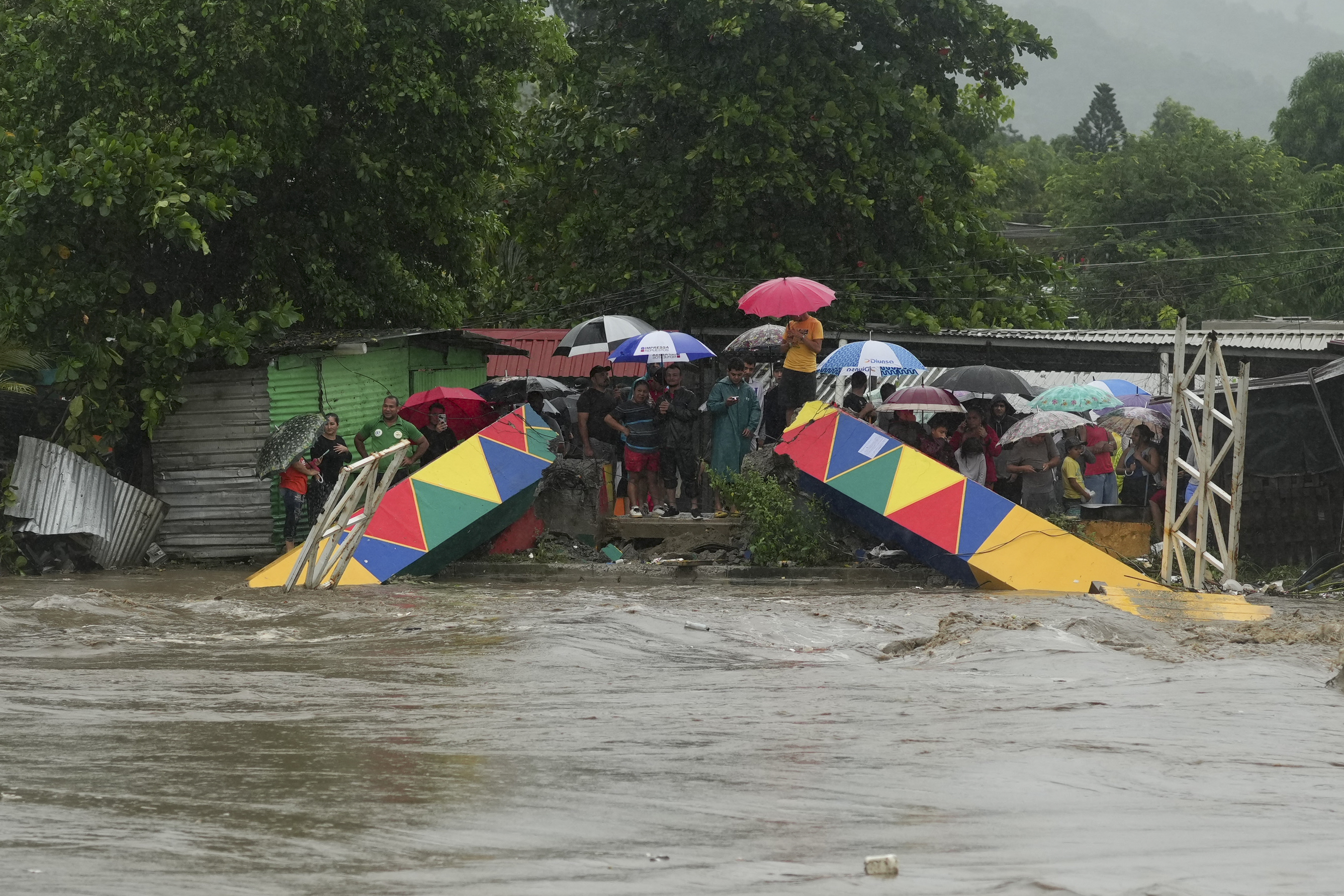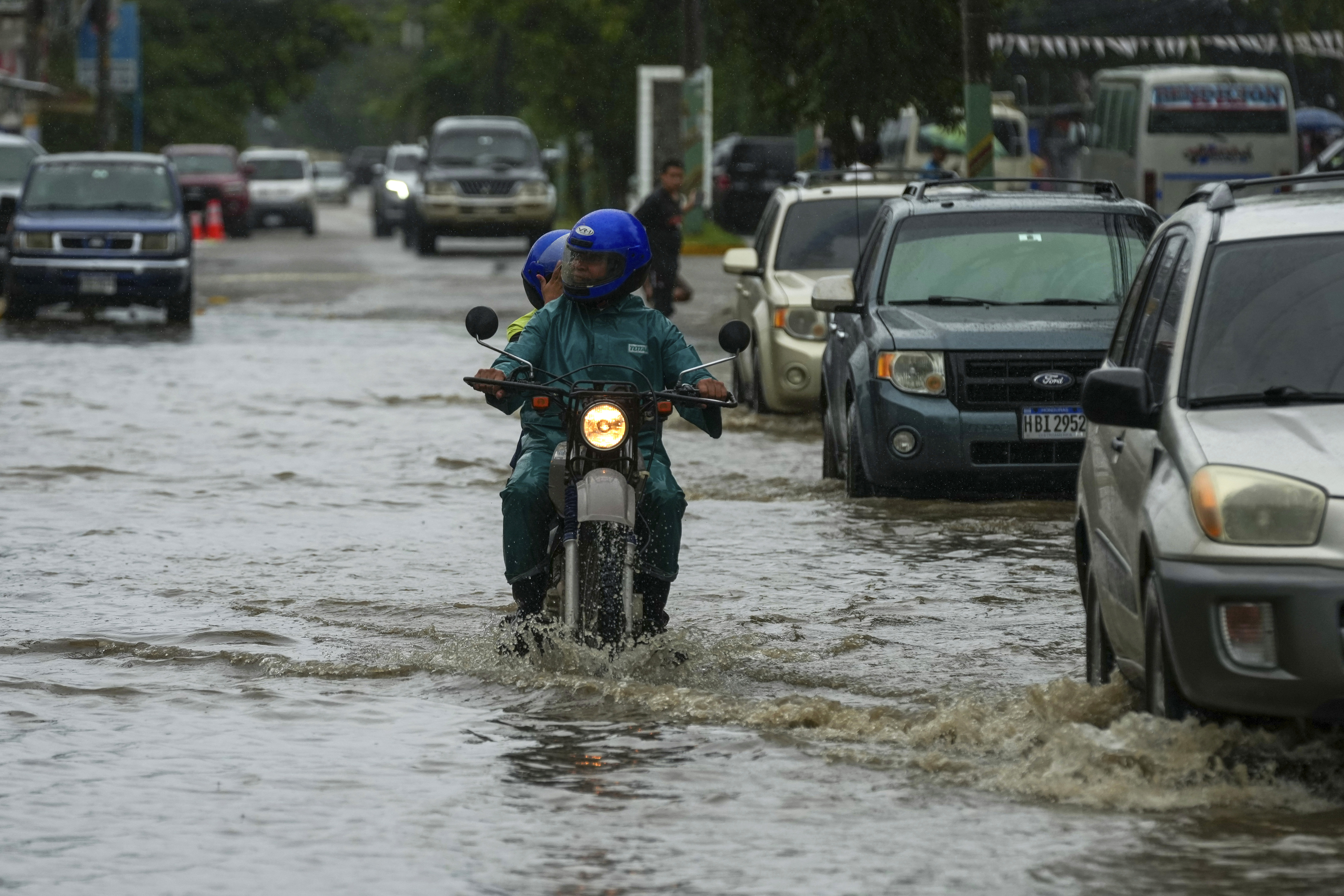
TELA, Honduras - Wading through waist-deep water, residents along the northern coast of Honduras trudged through the streets on Friday carrying their belongings and pets, as heavy rains from Tropical Storm Sara caused widespread flooding across the area.
Sara churned menacingly near the Caribbean coast of Honduras, close to beach resorts and ancient Maya ruins popular with tourists, as the storm also took aim at neighboring Belize and Guatemala.
The US National Hurricane Center forecast between 15 and 25 inches (38-63 cm) of rain in northern Honduras over the next few days, with up to 35 inches striking isolated areas.
Sara was located 35 miles (56 km) southwest of Honduras' Guanaja island.
ALSO READ: C. America braces for Tropical Storm Sara's 'life-threatening' downpour
That dangerous storm system will likely cause "life-threatening and potentially catastrophic flash flooding and mudslides," according to the Miami-based center.
Sara could also hit coffee production in Honduras, Central America's top producer.
Over 1,000 Hondurans have sought refuge in shelters, according to officials, while the government declared a national emergency on Friday afternoon.
READ MORE: At least 30 dead as torrential rains lash Central America

At a press conference, national head of risk management Jose Jorge Fortin urged locals to avoid flood-prone areas, among other precautions.
He noted that those living near riverbanks were especially vulnerable to flooding and landslides.
Sara is packing 50 mph (80 kph) winds, and the NHC estimates that "some slight strengthening is possible" over the next couple days provided the storm stays offshore.
ALSO READ: Central America bears brunt of powerful hurricane Iota
It will likely shift to the northwest, toward Belize, starting on Sunday, according to meteorologist Victor Ortega.
After leaving Honduras, Sara is expected to dump between 5-15 inches of rain across parts of Belize, El Salvador, eastern Guatemala, western Nicaragua and the southern Mexican state of Quintana Roo, according to the NHC.



